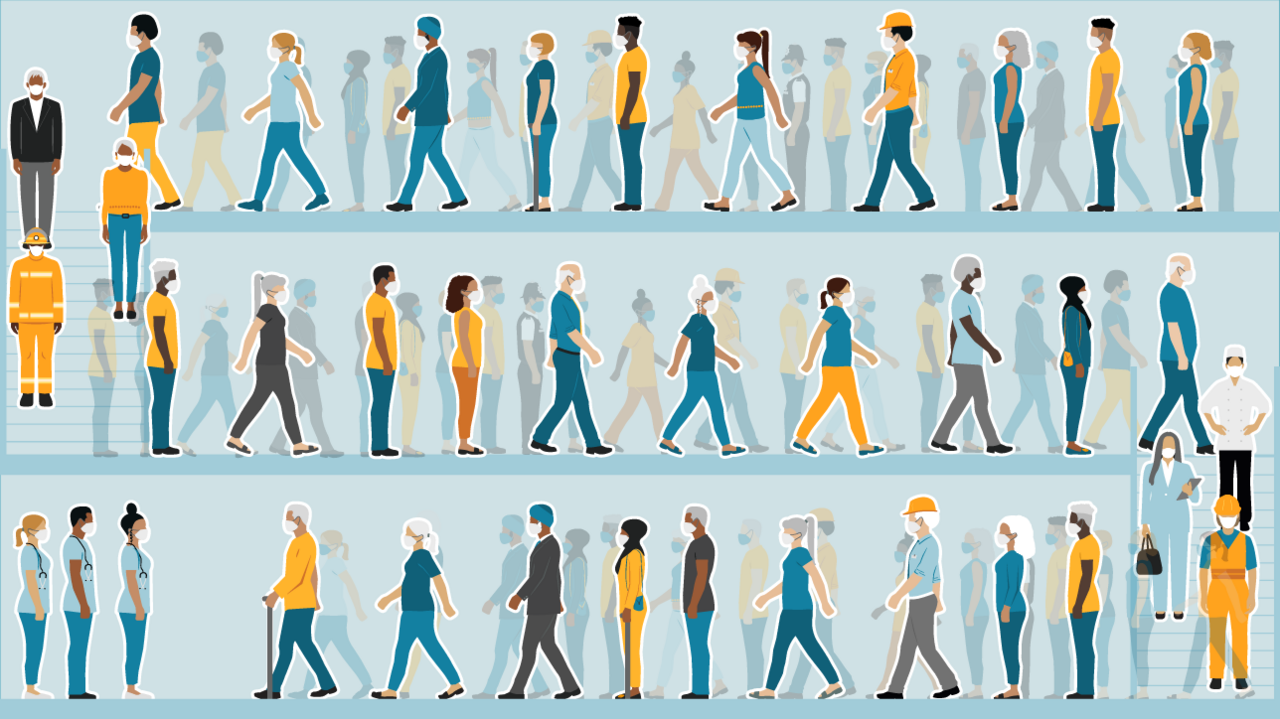Covid: Virus cases are going down across the UK
- Published
- comments
Matt Hancock: "The plan is working but we're a long way off getting this sorted"
Levels of Covid are going down in all nations of the UK, figures from the Office for National Statistics, external show.
The data is more evidence lockdown is controlling the virus, even with the more infectious variants circulating - although the health secretary said there is "still a long way to go".
The latest R number, external, estimated to be between 0.7 and 0.9, also suggests infection numbers are shrinking.
This is the first time since July that R has been this low.
It means, on average, every 10 people infected pass it on to between seven and nine other people.
Experts warn that infection levels remain high, however.
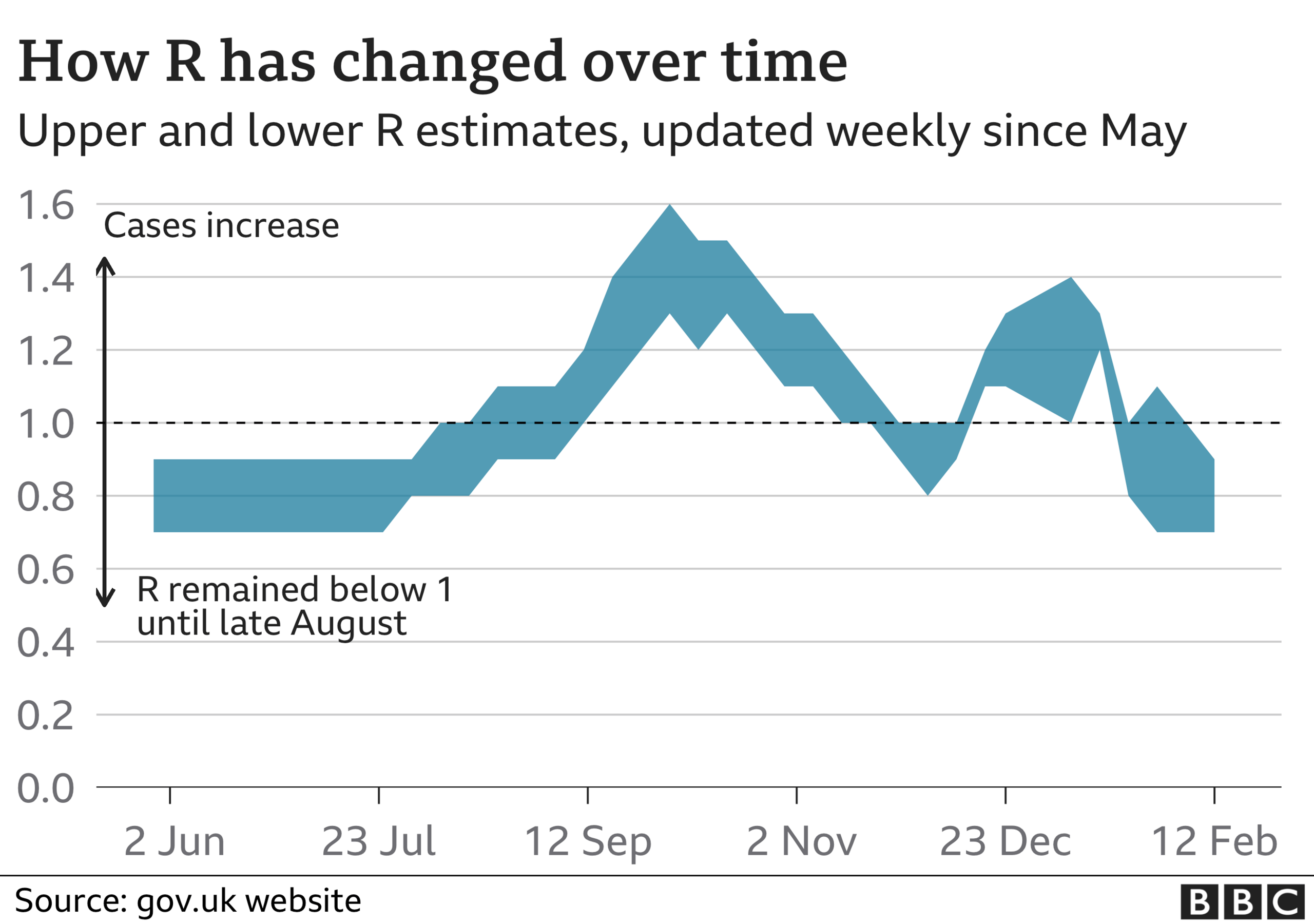
It comes as 15,144 new cases were recorded in the UK, as well as 758 deaths within 28 days of a positive test, according to the latest government figures, external.
Health Secretary Matt Hancock said the ONS figures were "clearly good news", but pointed out there were still more than 24,000 people in hospital with Covid.
He said: "Everyone can have confidence that the plan is working, that what we're collectively doing is having a positive impact but there's still a long way to go."
It is not clear yet when lockdown will begin to be lifted. Scientists advising government say the lower the cases can get, the better. Unlocking too soon risks another surge of the virus, even though more people are being vaccinated against the disease every day.
Prime Minister Boris Johnson has said he will outline plans for easing any restrictions in the week of 22 February.
Getting schools back will be the immediate priority, the government says.
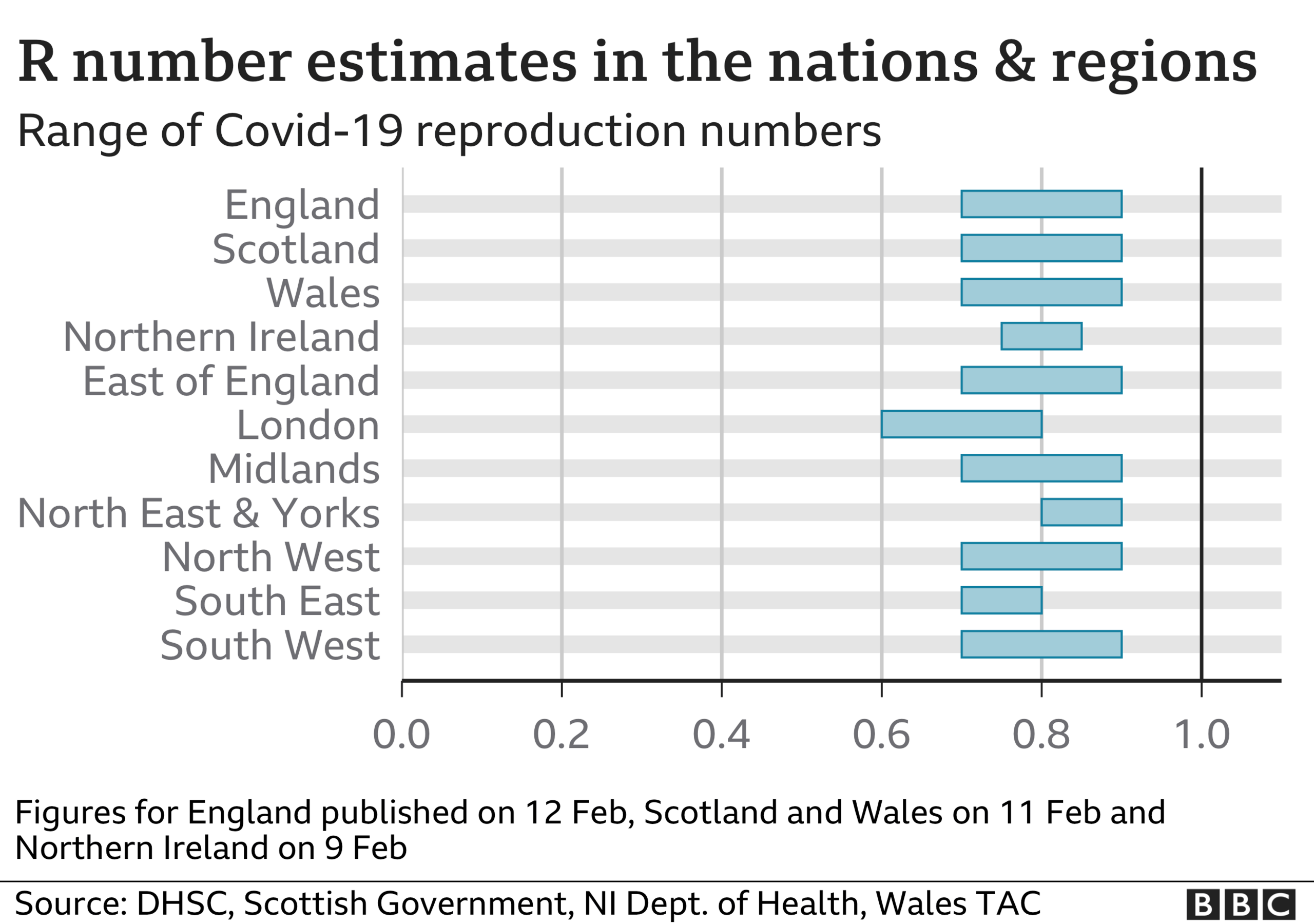
The PM's official spokesman did not rule out the possibility of social distancing being maintained until the autumn, saying: "The latest data and evidence clearly shows that we remain in a difficult situation with the pressure on the NHS still very significant.
"We will set out a gradual and phased approach towards easing the restrictions in a sustainable way."
The ONS figures, based on tests from people whether or not they had symptoms, suggest:
One in 80 people in England has the virus
In Northern Ireland, it is one in 75
In Wales, it is one in 85
In Scotland, it is one in 150
London continues to have the highest proportion of people likely to test positive for coronavirus in any region of England, with around one in 60 estimated to have had Covid-19 in the week up to 6 February.
The ONS's data is slightly out of date - covering the week up to 6 February - so may not reflect the situation right now.
Senior Statistician Sarah Crofts said: "Rates of infection remain high but have continued to decrease in England and across the UK.
"The percentage of positive cases compatible with the new UK variant also continues to decrease in all regions of England except for Yorkshire and The Humber, the East Midlands and the South West where trends remain uncertain."


The evidence is clear - lockdown is having the desired effect of controlling the virus, bringing the number of new infections down.
It is very welcome news, but does it mean we can now safely start to lift some restrictions? Not quite yet, say experts.
As one explained, it's a bit like when a relative has been very ill in hospital and you hear that they are getting better - it's wonderful, but it doesn't mean that the "treatment" can stop or that things can't take a turn for the worse.
There is still plenty of the virus circulating that people could catch.
And although the vaccine rollout is going really well, there are lots of people in the UK who are not yet protected and who could fall serious ill with Covid-19 if they become infected.

Meanwhile, more than 14 million people in the UK have had at least their first dose of a coronavirus vaccine.
The government's pledge is to offer a vaccine to around 15 million people in the top four priority groups - which includes people over 70, health and social care workers and people who are extremely clinically vulnerable and shielding - by Monday 15 February.
In a video message, the prime minister said the government appeared to be "on target" to meet the pledge, external - adding the latest figures on vaccinations highlighted an "incredible national effort" by NHS staff, Army personnel and volunteers.
Wales says it has already achieved this. England, Scotland and Northern Ireland are expected to announce the same soon.
The 14 million figure includes some people outside of these initial groups.
Some regions of the UK have begun inviting groups planned to be reached later in the month, such as the over-60s and people aged 16-64 with underlying health conditions.


LOOK-UP TOOL: How many cases in your area?
LOCKDOWN RULES: What are they and when will they end?
SCHOOLS: When will they reopen?
OXFORD JAB: What is the Oxford-AstraZeneca vaccine?

Related topics
- Published5 February 2021
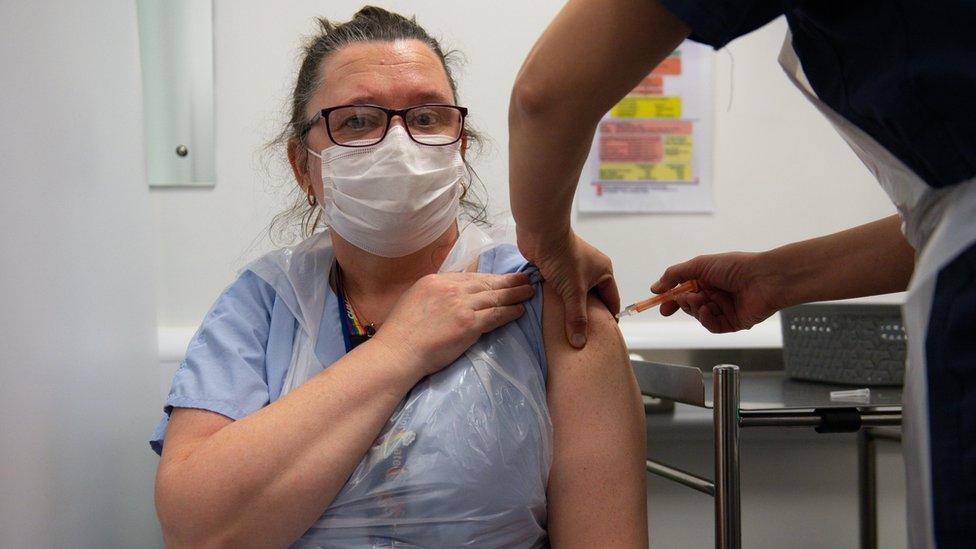
- Published4 February 2021

- Published22 February 2022
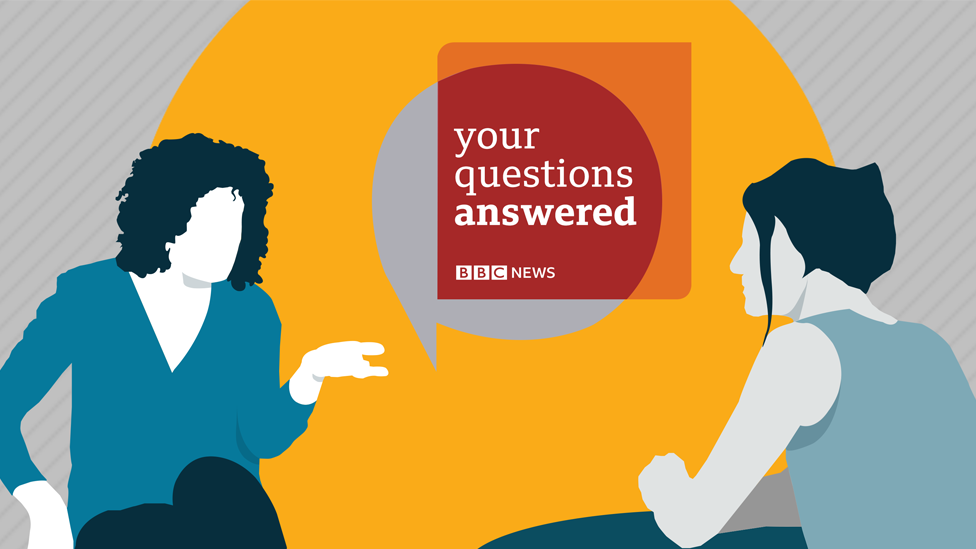
- Published4 March 2022
